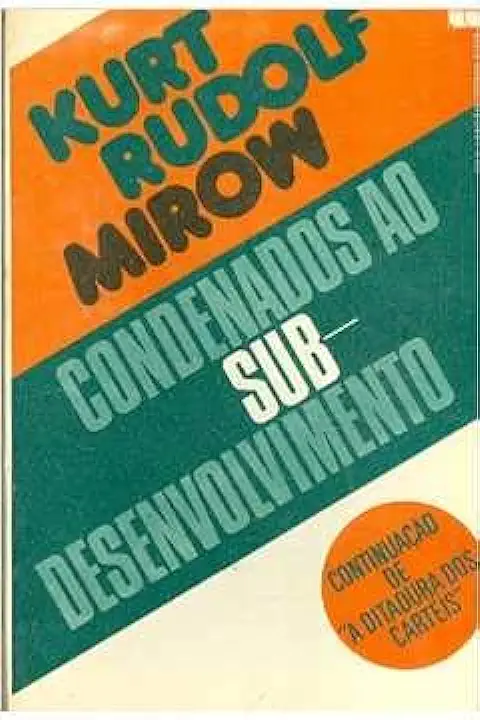
Condemned to Underdevelopment - Kurt Rudolf Mirow
Condemned to Underdevelopment: An Analysis of the Problems of Economic Development in Latin America
Kurt Rudolf Mirow's "Condemned to Underdevelopment" is a seminal work in the field of development economics. First published in 1977, the book provides a comprehensive analysis of the economic problems facing Latin America and offers a radical critique of the prevailing development strategies of the time.
Mirow's Main Arguments
Mirow argues that Latin America's underdevelopment is not simply the result of a lack of resources or capital, but rather of the structural characteristics of the region's economies. He identifies several key factors that contribute to underdevelopment, including:
- The unequal distribution of land and wealth: Mirow argues that the concentration of land and wealth in the hands of a small elite has led to a skewed distribution of income and a lack of investment in productive sectors of the economy.
- The dependence on primary exports: Latin American economies have historically been heavily dependent on the export of primary commodities, such as agricultural products and minerals. This dependence has made them vulnerable to fluctuations in world market prices and has limited their ability to diversify their economies.
- The lack of industrialization: Mirow argues that Latin America's lack of industrialization is a major obstacle to economic development. He argues that industrialization is essential for creating jobs, generating income, and reducing poverty.
- The role of foreign investment: Mirow is critical of the role of foreign investment in Latin America. He argues that foreign investment has often led to the exploitation of natural resources and the repatriation of profits, rather than contributing to the development of the local economy.
Mirow's Policy Recommendations
Mirow's analysis of the problems of underdevelopment in Latin America leads him to propose a number of policy recommendations, including:
- Land reform: Mirow argues that land reform is essential for reducing inequality and increasing agricultural productivity. He proposes redistributing land to small farmers and cooperatives, and providing them with access to credit and other resources.
- Industrialization: Mirow argues that Latin America needs to industrialize in order to create jobs, generate income, and reduce poverty. He proposes policies to promote industrialization, such as import substitution policies, export subsidies, and the development of infrastructure.
- Regional integration: Mirow argues that Latin American countries should cooperate with each other to promote regional integration. He proposes the creation of a common market, the coordination of economic policies, and the development of joint infrastructure projects.
Why You Should Read "Condemned to Underdevelopment"
"Condemned to Underdevelopment" is a must-read for anyone interested in the economic development of Latin America. Mirow's analysis of the problems of underdevelopment is insightful and provocative, and his policy recommendations are well-argued and persuasive. The book is a valuable resource for scholars, policymakers, and anyone else who wants to understand the challenges facing Latin America today.
Conclusion
"Condemned to Underdevelopment" is a classic work of development economics that has stood the test of time. Mirow's analysis of the problems of underdevelopment in Latin America is still relevant today, and his policy recommendations are still worth considering. The book is a must-read for anyone interested in the economic development of Latin America.